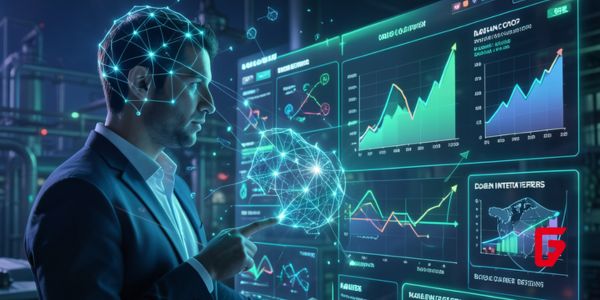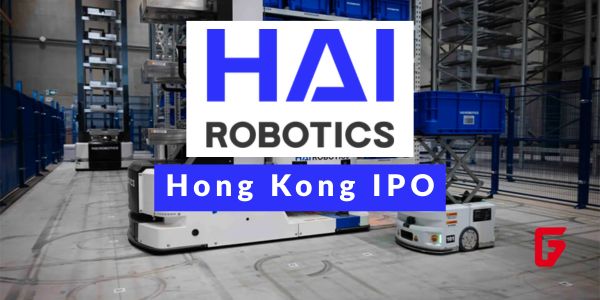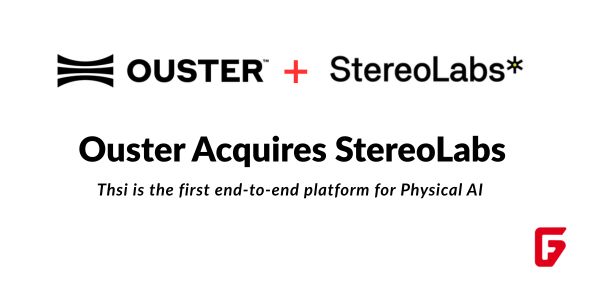Startups & Business News

The tech industry is at a crossroads. Google, a leader in sustainability and innovation, just revealed a startling truth: its carbon emissions have skyrocketed by 51% compared to previous years. The culprit? The explosive demand for artificial intelligence (AI) and data center expansion. This isn’t just a Google problem—it’s a wake-up call for the entire digital ecosystem.
Why Are Google’s Emissions Rising?
Google’s latest environmental report paints a complex picture. On one hand, the company has made impressive strides in renewable energy and energy efficiency. On the other, the sheer scale of AI adoption and data center growth is outpacing its sustainability efforts.
Data Center Expansion: Data centers now account for a quarter of Google’s total energy use, with consumption jumping 17% in 2023 alone.
Supply Chain Challenges: A staggering 75% of Google’s emissions come from its supply chain—areas where decarbonization is notoriously difficult.
AI’s Energy Appetite: Generative AI, like the models behind ChatGPT and Google’s own Gemini, consumes far more energy than traditional computing tasks. A single AI-powered search can use up to ten times the electricity of a standard Google search.
AI and Energy: The Numbers Behind the Headlines
Let’s break it down. If Google were to fully integrate generative AI across its search platform—processing nine billion queries daily—it would require an extra 10 terawatt-hours (TWh) of electricity each year. That’s enough to power a small country. In a worst-case scenario, Google’s AI operations alone could match the annual electricity consumption of Ireland.
The Broader Data Center Industry Challenge
Google’s dilemma reflects a global trend. Data centers, AI, and cryptocurrency operations already consume about 2% of the world’s electricity. By 2026, that figure could double, rivaling the total electricity demand of Japan. In the US, data centers are expected to account for 6% of national electricity consumption by 2026, driven by 5G, cloud services, and generous tax incentives.
Google’s Sustainability Efforts: Progress Amidst Pressure
Despite these challenges, Google isn’t standing still. The company has:
Increased Carbon-Free Energy Use: Google now matches 66% of its data center energy consumption with carbon-free sources on an hourly basis.
Improved Energy Efficiency: Its data centers are 84% more efficient than the industry average, and its latest AI chips use 30 times less energy than those from just six years ago.
Expanded Clean Energy Procurement: Google added 2.5 gigawatts of new clean energy in 2024 and made its largest-ever procurement of 8 gigawatts.
Pushed Suppliers Toward Renewables: Through the Renewable Energy Addendum, Google requires its largest hardware suppliers to commit to 100% renewable energy by 2029.
The Road Ahead: Balancing Innovation and Responsibility
The tech industry’s energy dilemma is clear: as AI and data centers become more integral to our digital lives, their environmental impact grows. Google’s story is a microcosm of a larger challenge facing all tech giants. The question isn’t just about reducing emissions—it’s about reimagining how we power the future of technology.
For tech enthusiasts and industry watchers, the next few years will be critical. Can innovation and sustainability coexist? Google’s journey offers both caution and hope.

futureTEKnow
Editorial Team
futureTEKnow is a leading source for Technology, Startups, and Business News, spotlighting the most innovative companies and breakthrough trends in emerging tech sectors like Artificial Intelligence (AI), Robotics, and the Space Industry.
Discover the companies and startups shaping tomorrow — explore the future of technology today.
Trending Companies
Latest Articles

Dwelly Raises $93M to Supercharge AI-Powered UK Rentals Roll-Up
London startup Dwelly just landed $93M to snap up UK rental agencies and inject AI smarts. Founders from Uber and

Encord Raises $60M Series C: Fueling Physical AI Data Wave
Encord just landed $60M in Series C funding to supercharge data tools for physical AI. Founders Eric Landau and Ulrik

Foodforecast Raises €8M Series A to Slash Ultra-Fresh Food Waste with AI
Foodforecast, a Cologne AI foodtech firm, just scored €8M in Series A funding led by SHIFT Invest. Their tools predict

AI-Driven Operational Excellence: How Leaders Scale Ownership, Discipline, and Continuous Improvement in 2026
In 2026, AI scales operational excellence fundamentals—clear ownership, disciplined execution, and continuous improvement—letting leaders focus on outcomes while systems handle

VoiceLine raises €10M to scale voice AI for enterprise frontline teams
Munich-based VoiceLine has closed a €10M Series A round to grow its voice AI platform for frontline sales and service

AI-Driven Logistics & Distribution Transformation: From Insight to Scalable Impact
AI is redefining logistics transformation—from network design to real-time execution. This article explores how data-driven insight, intelligent automation, and scalable

Hai Robotics Hong Kong IPO: From Startup Funding to Warehouse Robot Leader
Shenzhen’s Hai Robotics, pioneer in ACR warehouse robots, files for HK IPO after raising over $500M in funding rounds led

AI-Enabled Process Engineering & Continuous Improvement: Designing Systems That Learn
Explore how AI transforms process engineering and continuous improvement into self-learning systems. This article explains how organizations can design operations

Ouster Acquires StereoLabs: Unified Physical AI Sensing Platform Launches
Ouster’s $35M StereoLabs acquisition fuses lidar and ZED cameras into end-to-end Physical AI sensing. Founders Cecile Schmollgruber and team drive

Bretton AI Lands $75M Series B Funding to Scale AI Agents for Financial Crime and AML/KYC Compliance
Bretton AI’s $75M Series B modernizes AML KYC compliance via AI agents, slashing staffing costs for banks and fintechs like

Axiom Space Raises $350M to Build Commercial Space Station and NASA Spacesuits
Axiom Space has locked in a fresh $350M raise to push its commercial space station and NASA lunar spacesuits toward

Santé Raises $7.6M Seed: AI Fintech Revolution for Wine and Liquor Retail
New York startup Santé secures $7.6M seed to build AI-powered POS for liquor stores, tackling regs & inventory woes after
futureTEKnow is focused on identifying and promoting creators, disruptors and innovators, and serving as a vital resource for those interested in the latest advancements in technology.
© 2026 All Rights Reserved.
![Discover the top 10 AI companies in Germany [1st Edition], revolutionizing industries with cutting-edge technology and innovations.](https://futureteknow.com/wp-content/uploads/2025/02/Top-10-AI-Companies-in-Germany-Leading-the-Tech-Revolution-futureTEKnow.jpg)







